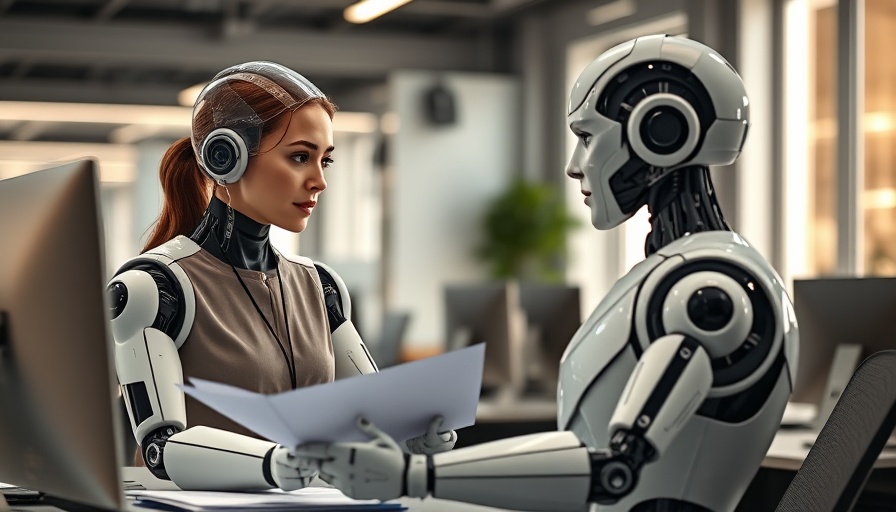
The Emotion Behind the AI Job Debate
The advent of artificial intelligence (AI) has sparked a range of emotions, from excitement to fear, especially regarding its influence on our jobs. While many individuals ponder whether AI will undermine their careers, experts from the International Labour Organization (ILO) are here to calm those fears. Janine Berg, a Senior Economist at ILO, brings a refreshing perspective, suggesting that instead of a 'jobs apocalypse,' AI is likely to reshape the job landscape, reallocating tasks rather than entirely removing them.
Shifting Job Landscapes: A Nuanced Perspective
A key insight highlighted in conversations around AI job impacts is that not all tasks can or will be automated. Although generative AI might seem like it holds the potential to displace jobs, research indicates that only about 2.3% of global jobs could face full automation. This means that while many clerical support roles might experience changes, jobs requiring creativity, interpersonal skills, and critical thinking are likely to remain intact. Just like twenty years ago when social media management barely existed—isn’t it fascinating to think of the new jobs that are already emerging as technology advances?
Opportunities Amidst Challenges
The ILO's research offers a silver lining; new opportunities arise out of technological advancement. Much like how the shift from video rental stores to cell phone repair shops occurred, we can expect an evolving marketplace that creates professions we haven’t even dreamed of yet! This transition challenges us to rethink our skillset and adapt to the changes proactively—embracing lifelong learning and training will be essential in capitalizing on these new roles.
Regional and Gender Balancing in Job Markets
A significant aspect of the AI job transformation narrative revolves around its uneven impact across different demographics. The ILO's analysis shows a concentration of potential job displacement in clerical support, with varying levels of exposure across different occupations. This sparks conversations about how certain groups may be more affected than others, raising the need for targeted training and development initiatives across regions.
Understanding the Human Element in AI
It’s essential to remember that many seemingly automated systems still rely heavily on human labor, highlighting the interplay between technology and human effort. For example, self-checkout systems in grocery stores depend not just on the technology but also on customers adapting to perform tasks traditionally handled by employees. This interdependence suggests a future of human-technology collaboration rather than outright replacement.
The Path Forward: Embracing Lifelong Learning
Now is the time to consider how these shifts may affect your future job opportunities. As AI evolves, being adaptable and ready to learn new skills will be key for job seekers. It's time to embrace change, invest in education, and prepare for roles that may not yet exist. Lifelong learning should be the anthem as we navigate the evolving job landscape.
Conclusion: A Call to Action for Job Seekers
As we step into an AI-driven future, it’s crucial to be both vigilant and active in preparing for what lies ahead. By understanding how AI will reshape work rather than eliminate it, we can plan our careers more wisely. Don’t let uncertainty hold you back. Consider taking action now and explore resources to enhance your skills. Discover more about adapting to the changing job landscape and bypass AI detectors with ease at Prompt2Human.com.
 Add Row
Add Row  Add
Add 




 Add Row
Add Row  Add
Add 

Write A Comment